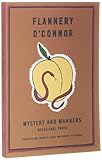My 2018 experience, perhaps like everyone else, is much swamped with all sorts of political news that keeps me in dread and panic. As a result, my reading life is divided into three categories: (1.) I consult history-related books to try to understand our current age; (2.) I read fiction works that match my ambition to live a big life and write a big book; (3.) I translate essay collections from English to Chinese for work. The following three books are the most impressive one in each category:
1. The World of Yesterday
It feels very strange and even terrifying to find every line in this masterly memoir of the 20th century resonating. Stefan Zweig described his childhood as the age of scientific accomplishments—the invention of electric light, telephone, and train—and recalled a unanimous belief that men would eventually vanquish “the last vestige of evil and violence.” From his portrait I felt as if I’d seen my childhood in the Age of Information again—the arrival of personal computers and Internet made us believe that all borders could be trespassed and that the spirit of democracy would soon triumph. But now, seeing the growing dark side of social media and Internet in general, I realize that I too was being naïve.
Zweig quotes Shakespeare’s Julius Caesar in his last chapter: “The sun of Rome is set. Our/ day is gone. / Clouds, dews, and dangers come;/ our deeds are done.” I read it with great sadness, but I try to remind myself that even at the night of humanism, we still have our own inner light to illuminate at least the path ahead of us.
 2. The Sympathizer
2. The Sympathizer
Viet Thanh Nguyen’s stunning debut novel, The Sympathizer, has received much critical acclaim, including the 2016 Pulitzer Prize for fiction. Reading such a profound and beautiful book, everyone can have very different takeaways. As a fiction writer, I am amazed by how Nguyen can make so many contrasts and contradictions all fit extraordinarily well together in this spy novel: the protagonist’s confession is grandiloquent and yet genuine, the narrative voice has a character but not a name, the conventional idea of fraternity and kinship is challenged and yet confirmed. Any summary or depiction would only narrow the scope of this great work. It is the book about the size of our large, chaotic contemporary world.
 3. Mystery and Manners: Occasional Prose
3. Mystery and Manners: Occasional Prose
I have spent my first post-workshop year translating Flannery O’Connor’s The Habit of Being and Mystery and Manners into Chinese for Shanghai Translation Publishing House. This towering canonical American author has refreshed my thoughts on the nature and aim of fiction. Fiction, as she put it in a Catholic way, is about mystery incarnated in specific and concrete characters. O’Connor, in her time, needed to confront the general readers’ demand that novels should demonstrate a “positive image” of a social group, i.e. the South, the Catholics. As a writer in a second language, I am facing the same demand that my China stories should only show the bright side of my country. O’Connor’s response is not only refreshing but also encouraging to me: fiction writers need to show what it is rather than what it should be; the latter means that we have closed our own eyes on the real world.
More from A Year in Reading 2018
Don’t miss: A Year in Reading 2017, 2016, 2015, 2014, 2013, 2012, 2011, 2010, 2009, 2008, 2007, 2006, 2005
The post A Year in Reading: Jianan Qian appeared first on The Millions.
from The Millions http://bit.ly/2A2g2Cz

No comments:
Post a Comment